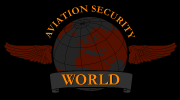Report Faults TSA Security Contracting
Soon after awarding a $104 million contract in February 2002 to hire 30,000 screeners, the under-staffed agency demanded significant changes to the contract that would eventually push the price of the deal to more than $741 million. TSA officials then moved forward with no planning "or adequate cost control," the report said, and they ignored warnings from contractor NCS Pearson Inc. that project costs had far exceeded the budget approved by Congress.
"Generally, legislative deadlines, rather than detailed requirements or cost analyses, drove TSA's management decisions," said the report, which was prepared by the Office of Inspector General at the Homeland Security Department.
The 32-page report is set to be released next week. A Pearson spokeswoman declined to comment on the report, saying she had not seen it. A TSA spokeswoman also said she had not seen the report and could not comment.
The report's findings are based largely on the work of the Defense Contract Audit Agency, which called into question $303 million of the government's spending on the screener contract. The DCAA's audit, obtained in June by The Washington Post, documented in detail how TSA officials and contractor NCS Pearson had lost control of spending at 150 temporary assessment centers set up at hotels and resorts across the country.
The new report attributed large increases in the screener contract to the TSA's decision to place the assessment centers at the hotels and resorts instead of using the contractor's facilities.
"TSA acknowledged that it performed no cost-benefit analyses to support the establishment of temporary assessment centers," the report said, adding, "TSA acknowledged it did not properly manage the assessment centers and the contract."
Although Pearson had originally estimated it would need to assess fewer than seven people to hire each screener, it ended up reviewing more than 29 people for each person hired, the report said. The company eventually assessed more than 328,000 candidates in 2002.
The report said an assessment center in Topeka, Kan., tested 73 candidates and hired just four screeners, at an average cost of $143,432 per screener. At a center in Barrow, Alaska, 35 candidates were assessed and just two were hired, at a cost of $128,368 apiece.
Spending at the resorts under the contract included thousands of dollars in unsupported cash withdrawals by contractors and hundreds of thousands of dollars in charges for valet parking, telephone calls and beverages at undiscounted hotel rates. The chief executive of a start-up "event logistics" firm hired to help manage the assessment centers paid herself a $5.4 million salary for nine months' work. Sites for the assessment centers included lavish resorts in St. Croix, the Virgin Islands, and Duck Key, Fla.
The report said TSA officials "expressed no concern regarding the use of resorts and other high cost temporary assessment center locations." The TSA told auditors that oversight of Pearson and the contract costs was "impeded by NCS Pearson's failure to provide sufficient documentation for the costs."
The report credited the TSA with surmounting "a formidable challenge" in successfully recruiting more than 56,000 airport screeners by the congressional deadline. But the Homeland Security Department inspector general's auditors said the agency did not have adequate staff for management oversight, and they faulted the TSA for failing to fully analyze the impact of its decisions on the contract.
The report said the agency had only one contracting officer at the time the Pearson contract was awarded.
The TSA has since taken steps to improve, including increasing the staff in its contracting office to 73 by early last year, the report said. But the inspector general's office concluded that the agency still needs to do a better job with its acquisition policies and procedures.
The Homeland Security Department's inspector general began looking into the matter three years ago at the request of Sens. Ron Wyden (D-Ore.) and Byron L. Dorgan (D-N.D.), who publicly complained about reports of excessive spending in a screener-hiring center set up at the Wyndham Peaks Resort and Golden Door Spa in Telluride, Colo.
Last summer, the report was delivered to TSA Administrator Edmund S. "Kip" Hawley. An official at the inspector general's office said yesterday that it won't be publicly released until next week.
In a statement yesterday, Wyden said he was concerned that the report had pointed out a "systemic problem" with homeland-security contracting. He said Pearson was "behaving like a kid in a candy store" while the government behaved "like a negligent parent, failing to pay attention to how the money was being spent."
Wyden added, "This kind of waste and abuse of taxpayer money, especially in a time of tight budgets and ballooning deficits, is unacceptable."
Dorgan said, "The people in the agency didn't care where the money was spent. . . . It's an unbelievable waste of money."
Washington Post









0 Comments:
Post a Comment
<< Home